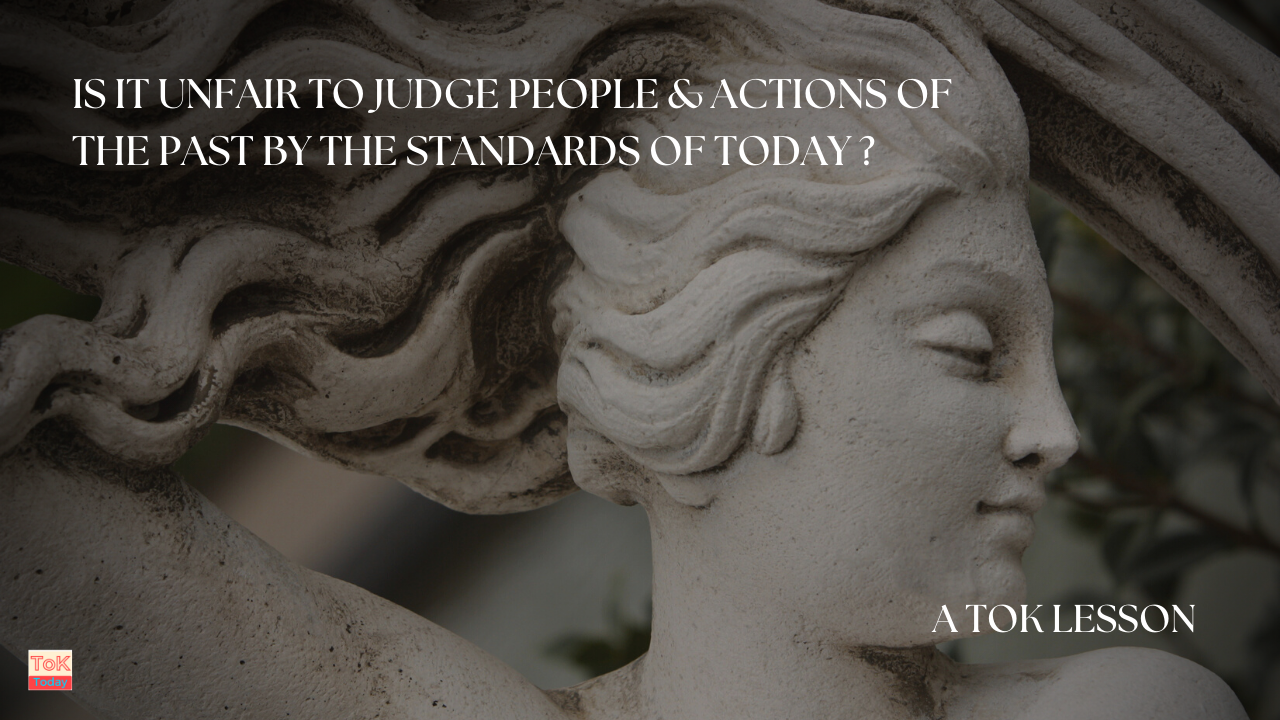Value Judgments in AoK History
Is it unfair to judge people & actions of the past by the standards of today?
I put together this lesson both because making value judgments in AoK History is a 'hot topic' in the current political zeitgeist sweeping academia and campuses, but also (and mainly) because some of my ToK students have been discussing it in their History class. I wanted to show how we could approach answering the question using Knowledge Arguments (or "perspectives").
This is the second lesson in the unit on AoK History. The first lesson can be found here.
This lesson focuses on two key ToK Skills:
Using knowledge arguments to explore a knowledge claim.
Identify the possible implications of a knowledge argument in terms of a knowledge claim.
ToK Skills Diagram Click here.
Lesson Structure.
Upfront teaching (Using the Presentation linked).
I've gone for some 'upfront' teaching at this point for 2 reasons:
My DP1 ToK class have requested more upfront direct instruction - I guess everyone has their fill of constructionism at some point !
I need to start bringing together some of their (burgeoning) ToK knowledge to show how it can be structured into an answer.
The presentation starts with a Mentimeter Poll - I find this is a great way to get engagement, and to give some RLS to form the basis of the ToK discussions.
Student active learning on historical judgments
Student Group Work.
Students form groups around the perspectives on the 'fairness' of historical judgements that they agree with.
Each group is to answer 3 questions:
Why did you choose this perspective rather than the other 2 perspectives ?
Explain one implication for Historical Knowledge of your perspective (using historical RLS).
Explain one implication for historical knowledge of one of the other perspectives (using historical RLS).
The challenge of the group work will probably be to keep the students focussed on the knowledge issues rather than the historical examples. The wording of the KQ from the ToK Study guide uses the word "unfair" which could be easily interpreted as a call to emotion. However practising the skill of extrapolating knowledge points from RLS will be of great benefit when the students do the ToK Exhibition and Essay.
Implications of knowledge arguments.
The group work also requires the students to consider the implications of knowledge arguments. This is a skill which I have found student's are particularly challenged by. Again, we're trying to build this for later assessments, as it is key to accessing the higher mark bands in the ToK Essay.
Closing Thoughts.
This lesson requires the students to exercise their "Historical Imagination" (to a degree), and then to transpose that into the ToK environment. We try to find a shortcut to that process by providing them with the ToK arguments at the beginning of the lesson. This is one of the ways of trying to build higher level skills in a restricted period of time. Obviously, this is only done because the students will have spent sustained time in more constructivist learning engagements earlier in the course.
There's more on ways to develop ToK understanding in the limited time available in the post linked here.
If you have any suggestions for teaching AoK History please do not hesitate to get in touch Daniel@TokToday.com. Wishing you a great day,
Daniel, Lisbon, Jan 2023
Bibliography
Little, Vivienne. “What Is Historical Imagination?” Teaching History, no. 36, 1983, pp. 27–32. JSTOR, http://www.jstor.org/stable/43254801. Accessed 16 Jan. 2023.





